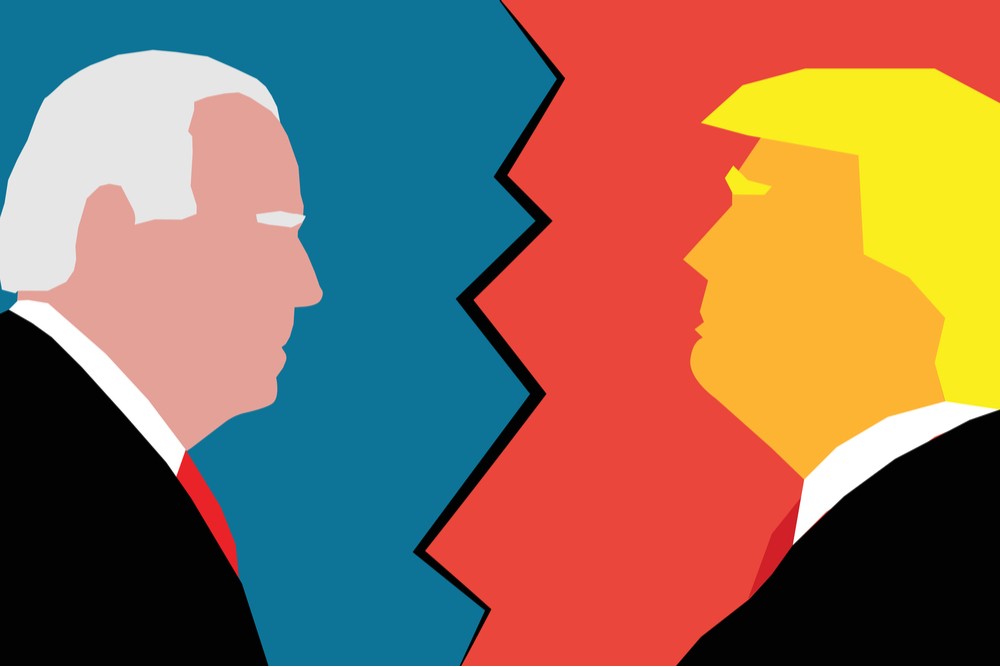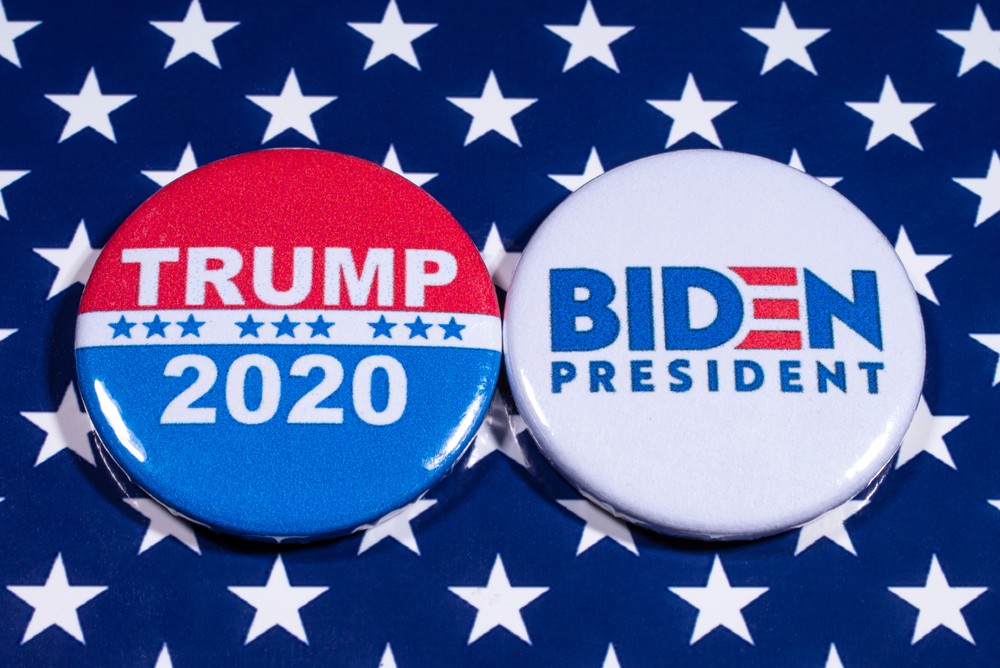Manufacturing Grows as a Point of Contention as Election Season Looms Nearer

If you’ve gotten your mail, turned on your TV, or hopped on Facebook in the last few months, you’ve likely been inundated with political advertising. And although candidates exchanging jabs is nothing new this time of year, there’s been an abrupt and noticeable shift in the conversation over the past 30 days. Headed down the final stretch before November, Joe Biden and Donald Trump have both put manufacturing in the spotlight — each candidate laying down his plan for the future of domestic manufacturing, while tamping down his opponent.
The manufacturing world according to Biden
Manufacturing has traditionally fallen in favor of the Republican platform; however, Democratic candidate Joe Biden is loudly voicing his Made in America tax proposition. The plan is designed to stimulate reshoring by imposing a 21% minimum tax on all foreign earnings. Biden’s plan also features an offshoring tax penalty, supplemented by a 10% tax credit for domestic manufacturers taking the initiative to create new domestic positions. His plan would cost taxpayers $700 billion.
Critics of the plan point to lack of a clear roadmap and refined policies for implementing taxes and incentives. Opponents also have been quick to attack Biden’s stance on trade tensions, particularly with China. Still, Biden’s initiative is picking up traction among domestic manufacturers — particularly steelworkers and machinists.

Trump contends with his track record
President Trump campaigned in 2016 on a strong platform of American manufacturing as part of his America First initiative. During the President’s tenure, there have certainly been efforts to fulfill on promises of reshoring. Unfortunately, four years into his term, the data weighs against the President. From a report by Fortune:
According to a survey by the American Chamber of Commerce in Shanghai, which was conducted in June and July, more than 70% of U.S. companies that own or outsource manufacturing in China do not plan to shift production outside China. Just 3.7% said they are shifting some production to the U.S. from China.
There’s also trade tensions to consider. While it’s too early to determine if the United States-Mexico-Canada Agreement (USMCA) has helped strengthen domestic manufacturing, there’s clear evidence that the American-Chinese trade war hasn’t.
Still, the President continues to make reshoring a cornerstone of his re-election efforts. In August, he touted a plan to create 10 million manufacturing jobs in 10 months via tax credits for U.S. companies. The President also has (non-specifically) made mention of imposing penalties for manufacturers who continue to operate overseas.
Who’s plan benefits manufacturing?
As the November election date closes in, it’s clear both candidates have a lot to say about manufacturing. Unfortunately, that’s where it seems to stop. Biden’s plan offers clear and direct incentives and consequences, but lacks a method to enact and enforce them. Trump’s track record is his biggest adversary and his solution appears to be more of the same.
This election cycle is shaping up to be the most divisive in history. Right now, manufacturing seems to be a trump card both candidates want in their hand.